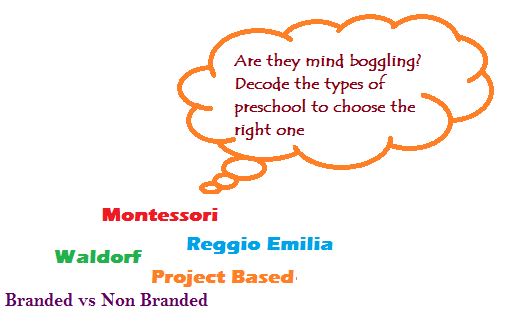There are options galore for parents looking for the preschools for their little one. They are equally mind boggling too, as preschools highlight different philosophies and settings in their brochure and websites. The word philosophies may seem confusing to hear and understand- Waldorf or Montessori or Reggio Emilia and so many more. You may hear about branded schools following a philosophy and you may also find independent schools which run in a small locality following a mix of different elements of couple of philosophies to form their own program.
Cyber Safety Initiatives by NexSchools
Wall Of I Support For Cyber Safety Awareness Campaign
NexSchools Runs The Largest School Cyber Safety Awareness Campaign
NexSchools Becomes STOP. THINK. CONNECT. Partner
School Children Making A Difference With Blogs
Celebrating Success Stories Of Lil Bloggers
NexSchools Announces Successful Completion of Cyber Warrior Ambassador Certificate Course
Then there are church or temple run preschools which may vary in their philosophy and activities as they make learning about the religion a daily routine. Also there are community organizations which offer preschool education too. There may be some parents who feel that they can't find the perfect fit for their child, in that case, they may opt to join a parent-run cooperative preschool or they may even start one of their own. Each school may interpret the same approach in a different way so it’s better to understand and familiarize yourself with the various approaches preschool follows for the best interest of your child.
Decode these terms try to do research of all types of models to see if it’s the one you are considering for your child.

Following are some of the approaches or philosophies which a preschool follows:
This approach focuses on establishing independence, self-esteem, and confidence of a child while fostering learning at a child's own pace. Teachers are more like guides who encourage and help each individual to learn how to observe, explore, question independently. Teacher may introduce a concept to the class and then focuses on working with children in small groups as they brainstorm and work independently. Children with special needs often do well in Montessori preschool.
This approach will stimulate a child with a caring, nurturing, home like environment. Creative play is the basic principle of this approach accompanied by teamwork, as it is believed that young kids learn maximum from their surroundings and by imitation.
Project Based Approach
In a project-based approach, a child learns by experimentation and exploration. Teachers relate the assignments to real world experiences and lessons. There are many pretend plays and a lot of field trips. A child works independently and is encouraged to handle a problem by himself. The teacher though serves as a guide but lets a child find out the solution independently.
This approach largely helps children develop strong thinking skills. The goal is to create learning environment in which a child is exposed to all expressive, communicative and cognitive experiences. Principles that work behind this objective are:
-
Evolving Curriculum: Topics for study are usually based on interests of children either by discussing with the class or their parents.
-
In-depth project study: The projects are explained in detail with the concept, ideas as well as interest. They may vary in duration from a week to a month.
-
Different style of learning: The same concept is represented in different styles like art, drama, music, game, puppetry, rhyme etc. This variation ensures that all kids understand thoroughly what is being taught to them.
-
Teamwork: Children work in groups to solve problems using negotiations, comparisons or dialogues. Each child is heard in the group promoting a balance between a sense of self as well as a sense of belonging.
Community/Religious
Many communities or religious organizations offer preschool programs too, giving more emphasis on socialization as well as pre-academic skills. These preschools may have a mix of several styles of programs (like some elements of Montessori program mixed with project-based program etc.); although to a great extent they depend on the philosophy of their head staff as well as teachers.
If you feel religious instruction is important to you, you may want to consider this option.
Cooperative
If you are unable to find the right fit for your child, you may want to opt for a cooperative school. These are usually less expensive. The parents run, manage and decide curriculum and may hire a professional teacher to oversee the classroom, else take turns and volunteer as teachers as well to manage finance or cleaning etc. All the parents usually meet on weekly/monthly basis and decide upon the activities the children should pursue. Though, it takes a lot of time and energy, but running a cooperative preschool can be very rewarding.
Parents Tips
No matter what type of preschool you choose, the most important point to ponder about is whether your child will be happy and comfortable there or not. The main goal for your child is to enjoy his time with other children and to develop a curiosity and love for learning. Formal education though, will come soon enough.
